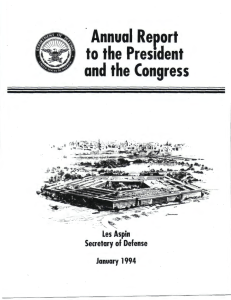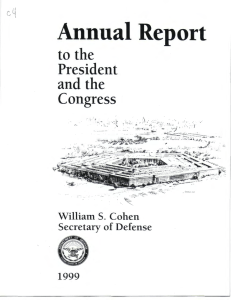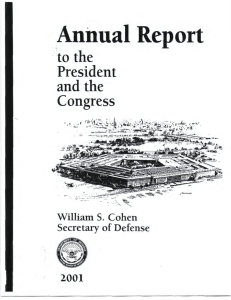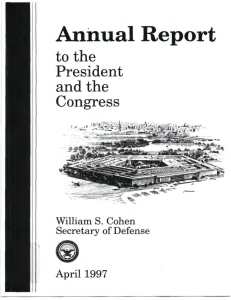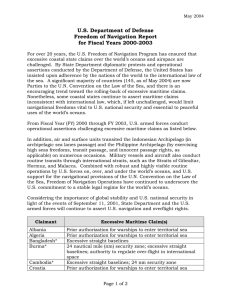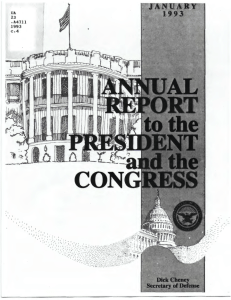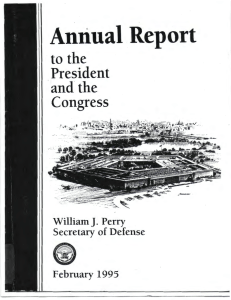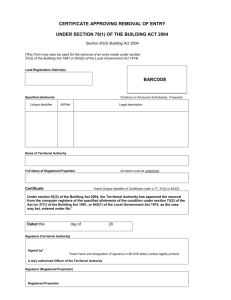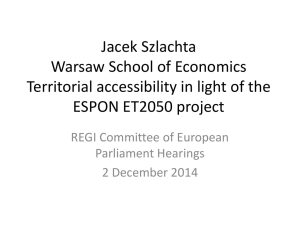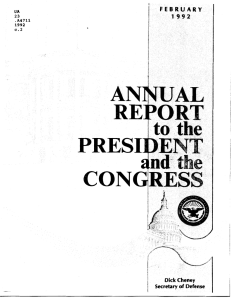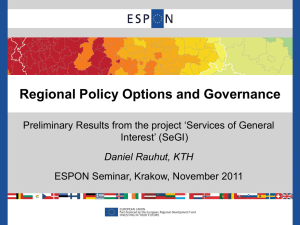) Annual Report to the
advertisement
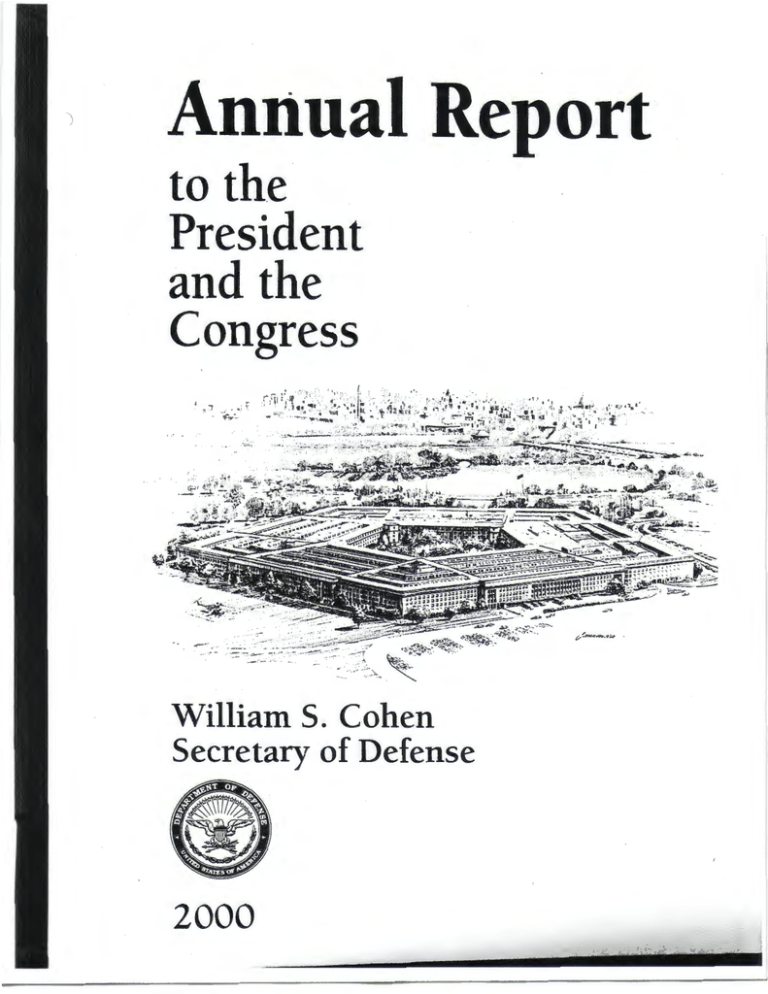
) Annual Report to the President and the Congress '·' ,;· ' c~,~~~?:-~~t1~~:-.£:;•;t;:?i~~;·;,f .~J~:.Y'"' . .. . . . . ... .~ . · · · ·. ' ·· ..,f/l:;,.JI . -:·., ~ 2>: --~~ ~ . -2L_ ~~·:>t~r/~4tit'' = 2000 Appendix H FREEDOM OF NAVIGATION r • FREEDOM OF NAVIGATION For 20 years, the U.S. Freedom of Navigation program has ensured that excessive coastal state claims over the world's oceans and airspace are repeatedly challenged. By diplomatic protests and operational assertions, the United States has insisted upon adherence by the nations of the world to the international law of the sea, as reflected in the UN Law of the Sea Convention. A significant majority of countries ( 131) are now Parties to the Convention, and there is an encouraging trend toward the rolling-back of excessive maritime claims. Nonetheless, some coastal states continue to assert maritime claims inconsistent with international law, which left unchallenged would limit navigational freedoms vital to U.S. national security and essential to peaceful uses of the world's oceans. Archipelago by exercising high seas freedoms, transit passage, and innocent passage, as applicable, on 34 occasions. Combined with robust and highly visible routine operations by U.S. forces on, over, and under the world's oceans, and strong United States support for the navigational provisions of the UN Law of the Sea Convention, Freedom of Navigation operations have continued to underscore the U.S. commitment to a stable legal regime for the world's oceans. On September 2, 1999, the Secretaries of Commerce and Navy, on behalf of the entire Cabinet, submitted to President Clinton a report entitled Turning to the Sea : America·s Ocean Future. This report sets forth the Cabinet's collective recommendations for U.S. oceans policy heading into the 21st century, and it includes a specific recommendation to expand the U.S. Freedom of Navigation program to exercise U.S. navigational rights and freedoms in areas of unacceptable maritime claims. Guided by this recommendation, the U.S. armed forces will make even greater efforts to assert U.S. navigation and overflight rights in order to promote both global stability and U.S. national security. In FY 1999, U.S. armed forces conducted operational assertions challenging the excessive maritime claims as listed below. In addition, military vessels and aircraft frequently conducted routine transits through international straits, such as the Straits of Gibraltar, Hormuz, and Malacca. Air and surface units also transited the Indonesian Archipelago in archipelagic sea lanes passage on 22 occasions and transited the Philippine FY 1999 DOD OPERATIONAL ASSERTIONS Country Excessive Claims Challenged Albania Prior permission for warship to enter the territorial sea Algeria Prior permission for warship to enter the territorial sea Cambodia Excessive straight baselines: claimed security zone; prior permission for warship to enter the territorial sea and security zone Djibouti Prior notification for nuclear-powered vessel to enter the territorial sea Ecuador 200 nautical mile (nm) territorial sea Egypt Prior permission for warship to enter the territorial sea El Salvador 200nm territorial sea India Prior notification for warship to enter the territorial sea: prior pem1ission required for military exercises and maneuvers in exclusive economic zone: Gulf of Manaar as historic waters Iran Excessive straight baselines; prior pennission for warship to enter the territorial sea Japan Excessive straight baselines Liberia 200nm territorial sea Malaysia Prior permission for military exercises in exclusive economic zone Malta Prior permission for warship to enter the territorial sea H-1 Appendix H FREEDOM OF NAVIGATION FY 1999 DOD OPERATIONAL ASSERTIONS (Continued) Nicaragua 200nm territorial sea Pakistan Excessive straight baselines; claimed security zone Philippines Excessive straight baselines; claims archipelagic waters as internal waters Romania Prior permission for warships to enter the territorial sea Saudi Arabia Claimed security zone Seychelles Prior notification for warship to enter the territorial sea Sierra Leone 200nm territorial sea South Korea Excessive straight baselines Sri Lanka Prior permission for warships to enter the territorial sea; Gulf of Manaar as historic waters Sudan Claimed security zone Venezuela Claimed security zone Vietnam Excessive straight baselines; claimed security zone; prior permission for warship to enter the territorial sea and contiguous zone: warship must place weapons in nonoperative positions prior to entering contiguous zone; Gulf of Tonkin as historic waters Yemen Prior permission for nuclear-powered warship to enter the territorial sea; claimed security zone H-2
